Pakistan
CJP Bandial asks political leadership to refrain from violating law
Published
3 years agoon
By

- Ours is not a political role, CJP Bandial
- CJP says political wars should be fought but on the streets.
- Govt had filed plea in top court against PTI’s long march.
ISLAMABAD: Chief Justice of Pakistan Umar Ata Bandial on Thursday asked the political leadership to refrain from violating the law and the constitution, or else there would be consequences.
“Ours is not a political role,” CJP Bandial said while heading the fivei-member bench hearing the government’s contempt petition against PTI Chairman Imran Khan. Justice Ijaz ul Ahsan, Justice Munib Akhtar, Justice Yahya Afridi, and Justice Sayyed Mazhar Ali Akbar Naqvi are also part of the bench.
The government through the petition is seeking orders restraining Khan from creating a law-and-order situation in line with the party’s proposed long march to Islamabad.
Advising the Attorney General for Pakistan to read the reports of the security agencies, the CJP said political wars should be fought but on the streets.
“The reports indicate that PTI had violated the promises [made to the court],” the AGP said, informing the court he was not provided with the copies of the reports to which the bench said the court would give him the reports.
“You want to avoid a war in the streets, so de we,” the CJP said adjourning the court till Wednesday, October 26, 2022 adding, “If something comes up in the meanwhile, we will take needed measures”.
The petition was filed by the Interior Ministry on October 13, requesting contempt of court proceedings against the former PM, under Article 204 of the Constitution for flouting and disregarding the orders of the apex court passed on May 25, 2022, on the petition filed by the Islamabad High Court Bar Association.
In its petition, the federal government told the apex court that the PTI chief is making announcements of marching towards Islamabad, which was a violation of a court order.
“Imran Khan is making announcements to attack Islamabad,” says the plea. It urged the Supreme Court to direct the PTI chief to ensure the implementation of its orders related to protests and sit-ins.
A five-member larger bench of the apex court, headed by Chief Justice Umar Ata Bandial with Justice Ijaz ul Ahsan, Justice Munib Akhtar, Justice Yahya Afridi, and Justice Sayyed Mazhar Ali Akbar Naqvi as members took up the plea for hearing.
At the outset of the hearing Attorney General of Pakistan, Ashtar Ausaf Ali presented his arguments in the case.
The government’s lawyer told the court that on its May 25 order, the law enforcement agencies had confined themselves to the Red Zone after which PTI supporters started pelting stones at the law enforcers and resorted to violence in the federal capital.
Recalling the events, the AGP said that it was decided that the PTI leadership would sit with the government and finalise the protest plan. But despite assurances from the party, Imran Khan directed workers to reach D-Chowk, he added.
Khan called his workers to converge on D-Chowk despite assuring the court he would not do so during the proceedings, the AGP recalled. The Srinagar Highway was opened for traffic on the court’s order. The PTI had asked for the Parade Ground but the workers thronged the D-Chowk on the contrary, the AGP added.
“…workers headed towards the Red Zone and then clashes broke out with law enforcement agencies. Protesters vandalised public and private properties,” the AGP said adding that the PTI’s lawyers were in contact with the party leadership during the proceedings that led to the Supreme Court’s May 25 order.
Ausaf also read out the Supreme Court’s May 25 order before the five-member bench. “The order forestalled us from apprehending [PTI] workers. It directed the Inter-Services Intelligence (ISI), Intelligence Bureau (IB), Inspector General Islamabad and the interior ministry to submit reports.
The AGP urged the Supreme Court to issue an interim order to stop Imran Khan’s planned long march to the federal capital. When asked what did he want, the AGP said, “Imran is inciting an attack on Islamabad and calling it jihad. He is provoking people through his fiery speeches.
“Protect citizens’ fundamental rights is the It is the state’s responsibility.”
“According to you (AGP), the court order had already been breached. You were the executive authority and following the court order. Now, you have the freedom to take preventative measures,” Chief Justice Bandial observed.
He noted that 31 people had been injured in the “Azadi March” and public property was destroyed. “Imran Khan was gone the next morning.”
“We will study reports in this matter. You should gear up for the situation as per the law,” the CJP directed the attorney general with regard to the security measures during the PTI’s march that Imran Khan said would not be delayed past October.
“You are telling us [the PTI] aims to march towards Islamabad and stage a sit-in again. You can handle the situation, while staying within the confines of the law,” Justice Bandial said adding, “As of now, it’s just speeches”.
The CJP said the government should be able to manage the law-and-order situation wherever there were threats in the urban areas of the country.
“We [the court] should be asked to stop the crowd, but there is none right now,” the chief justice observed.
The court however rejected the government’s request to issue an interim order for stopping the PTI’s planned long march and called on the AGP to come to the next hearing after completing his homework.
You may like
-
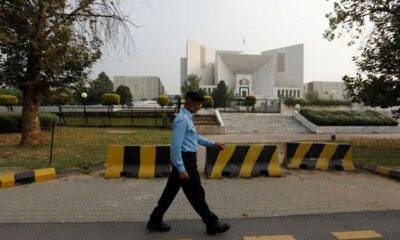

Supreme Court annuls trials of civilians in military courts
-
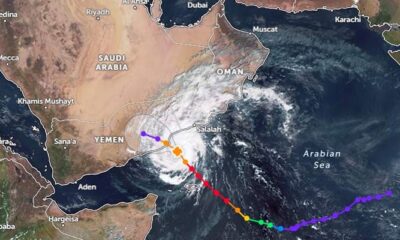

Sea conditions ‘very high’ as Cyclone Tej moves towards northwestward
-


IMF condition: ECC set to green light gas tariff hike today
-


UN experts claim Israeli actions in Gaza ‘violation of international humanitarian law’
-
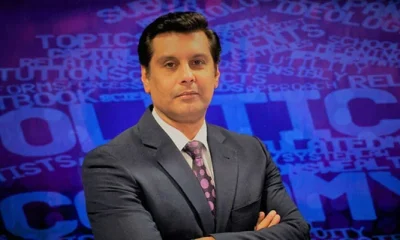

Arshad Sharif’s wife files lawsuit against Kenyan police over journalist’s killing
-


World Cup 2023: Pakistan opt to bowl first against Australia after winning toss

In a unanimous verdict, a five-member bench of the Supreme Court on Monday declared civilians’ trials in military courts null and void as it admitted the petitions challenging the trial of civilians involved in the May 9 riots triggered by the arrest of Pakistan Tehreek-e-Insaf (PTI) chief Imran Khan in a corruption case.
The five-member apex court bench — headed by Justice Ijaz Ul Ahsan, and comprising Justice Munib Akhtar, Justice Yahya Afridi, Justice Sayyed Mazahar Ali Akbar Naqvi and Justice Ayesha Malik — heard the petitions filed by the PTI chief and others on Monday.
The larger bench in its short verdict ordered that 102 accused arrested under the Army Act be tried in the criminal court and ruled that the trial of any civilian if held in military court has been declared null and void.
The apex court had reserved the verdict earlier today after Attorney General of Pakistan (AGP) Mansoor Usman Awan completed his arguments centred around the domain and scope of the military courts to try the civilians under the Army Act.
At the outset of the hearing today, petitioner lawyer Salman Akram Raja told the bench that trials of civilians already commenced before the top court’s verdict in the matter.
Responding to this, Justice Ahsan said the method of conducting proceedings of the case would be settled after Attorney General of Pakistan (AGP) Mansoor Usman Awan completed his arguments.
Presenting his arguments, the AGP said he would explain to the court why a constitutional amendment was necessary to form military courts in 2015 to try the terrorists.
Responding to Justice Ahsan’s query, AGP Awan said the accused who were tried in military courts were local as well as foreign nationals.
He said the accused would be tried under Section 2 (1) (D) of the Official Secrets Act and a trial under the Army Act would fulfill all the requirements of a criminal case.
“The trial of the May 9 accused will be held in line with the procedure of a criminal court,” the AGP said.
The AGP said the 21st Amendment was passed because the terrorists did not fall in the ambit of the Army Act.
“Amendment was necessary for the trial of terrorists [then] why amendment not required for the civilians? At the time of the 21st constitutional amendment, did the accused attack the army or installations?” inquired Justice Ahsan.
AGP Awan replied that the 21st Amendment included a provision to try accused involved in attacking restricted areas.
“How do civilians come under the ambit of the Army Act?” Justice Ahsan asked the AGP.
Justice Malik asked AGP Awan to explain what does Article 8 of the Constitution say. “According to Article 8, legislation against fundamental rights cannot be sustained,” the AGP responded.
Justice Malik observed that the Army Act was enacted to establish discipline in the forces. “How can the law of discipline in the armed forces be applied to civilians?” she inquired.
The AGP responded by saying that discipline of the forces is an internal matter while obstructing armed forces from discharging duties is a separate issue.
He said any person facing the charges under the Army Act can be tried in military courts.
“The laws you [AGP] are referring to are related to army discipline,” Justice Ahsan said.
Justice Malik inquired whether the provision of fundamental rights be left to the will of Parliament.
“The Constitution ensures the provision of fundamental rights at all costs,” she added.
If the court opened this door then even a traffic signal violator will be deprived of his fundamental rights, Justice Malik said.
The AGP told the bench that court-martial is not an established court under Article 175 of the Constitution.
At which, Justice Ahsan said court martials are not under Article 175 but are courts established under the Constitution and Law.
After hearing the arguments, the bench reserved the verdict on the petitions.
A day earlier, the federal government informed the apex court that the military trials of civilians had already commenced.
After concluding the hearing, Justice Ahsan hinted at issuing a short order on the petitions.
The government told the court about the development related to trials in the military court in a miscellaneous application following orders of the top court on August 3, highlighting that at least 102 people were taken into custody due to their involvement in the attacks on military installations and establishments.
Suspects express confidence in mly courts
The same day, expressing their “faith and confidence” in military authorities, nine of the May 9 suspects — who are currently in army’s custody — moved the Supreme Court, seeking an order for their trial in the military court be proceeded and concluded expeditiously to “meet the ends of justice”.
Nine out of more than 100 suspects, who were in the army’s custody, filed their petitions in the apex court via an advocate-on-record.
The May 9 riots were triggered almost across the country after former prime minister Imran Khan’s — who was removed from office via a vote of no confidence in April last year — arrest in the £190 million settlement case. Hundreds of PTI workers and senior leaders were put behind bars for their involvement in violence and attacks on military installations.
Last hearing
In response to the move by the then-government and military to try the May 9 protestors in military courts, PTI Chairman Imran Khan, former chief justice Jawwad S Khawaja, lawyer Aitzaz Ahsan, and five civil society members, including Pakistan Institute of Labour Education and Research (Piler) Executive Director Karamat Ali, requested the apex court to declare the military trials “unconstitutional”.
The initial hearings were marred by objections on the bench formation and recusals by the judges. Eventually, the six-member bench heard the petitions.
However, in the last hearing on August 3, the then-chief justice Umar Ata Bandial said the apex court would stop the country’s army from resorting to any unconstitutional moves while hearing the pleas challenging the trial of civilians in military courts.
A six-member bench, led by the CJP and comprising Justice Ijaz Ul Ahsan, Justice Munib Akhtar, Justice Yahya Afridi, Justice Sayyed Mazahar Ali Akbar Naqvi, and Justice Ayesha Malik, heard the case.
In the last hearing, the case was adjourned indefinitely after the Attorney General for Pakistan (AGP) Mansoor Usman Awan assured the then CJP that the military trials would not proceed without informing the apex court.
Pakistan
Sea conditions ‘very high’ as Cyclone Tej moves towards northwestward
Published
2 years agoon
By
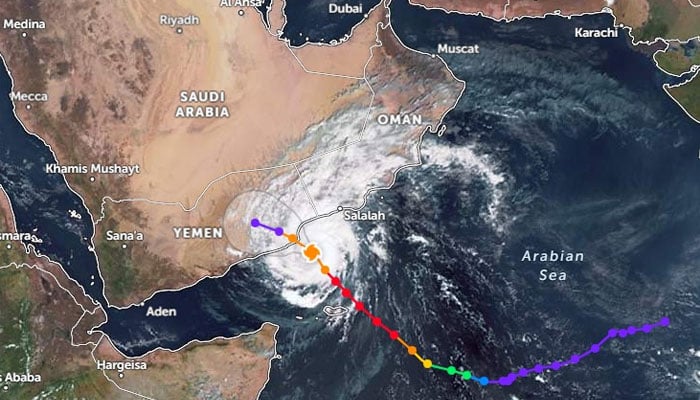
An Extremely Severe Cyclonic Storm (ESCS) named “Tej”, which has been brewing in the southwest Arabian Sea for the past few days, has continued to move northwestward toward the Arabian Peninsula’s coast.
According to the Pakistan Meteorological Department (PMD), over the past 12 hours, Cyclone Tej has been moving in a northwestward direction and is now “centred around latitude 14.4 N & longitude 53.2 °E”.
The update, which was issued today (Monday) at 10:00am (PST), also revealed that the brewing cyclone is situated “about 300km southwest of Salalah (Oman), 220km southeast of Al Ghaydah (Yemen) and 1520km southwest of Gwadar (Pakistan)”.
Additionally, the cyclone’s maximum sustained surface winds are between 150-160km/h, with gusts reaching 180km/h.
Moreover, sea conditions are currently very high, with maximum wave heights of 35ft around the system centre, according to the Met Office.
The system is expected to continue moving in a northwest direction and is likely to cross the Yemen coast, near Al Ghaydah by midnight as a very severe cyclonic storm (VSCS) with winds packing speeds of 120-130km/h and gusts reaching 150km/h.
However, it is important to note that there will be no impact on any of Pakistan’s coastal areas from this system.
According to PMD’s Daily Forecast, the weather is expected to remain dry for the next few days in most districts of Sindh, one of the coastal provinces of Pakistan.
Meanwhile, strong winds and thundershowers are likely to occur in and around some parts of Balochistan today, but dry weather is expected for the next few days.
Pakistan
PCB ‘dismisses’ objections over players support for Palestinians
Published
2 years agoon
By
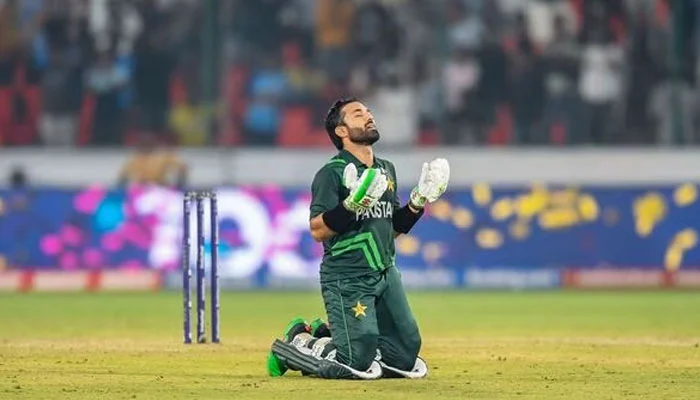
LAHORE: Pakistan’s cricket team, which is currently busy participating in the ICC Men’s T20 Cricket World Cup, has shown their firm support and shared their prayers for all Palestinians suffering at the hands of Israel.
However, there have been many questions raised by Indian fans and cricket experts on the players’ constant support for Palestine asking ICC — the governing body of the game — whether such moves were allowed in the tournament.
According to sources, the Pakistan Cricket Board (PCB) rejected the objections over players’ conduct saying: “The team’s expression of solidarity was a personal decision.”
Pakistan’s national team on Wednesday, posted a picture of the Palestinian flag on their individual X, formerly known as Twitter, accounts to show that they stand in solidarity with Palestine and that they are praying for the people suffering there including children.
☮️ ☮️ ☮️ ☮️ pic.twitter.com/r8E31Jsfya
— Shadab Khan (@76Shadabkhan) October 18, 2023
— Haris Rauf (@HarisRauf14) October 18, 2023
🤲🤲🤲🤲 pic.twitter.com/2hH4Gjmyhn
— Muhammad Nawaz (@mnawaz94) October 18, 2023
Prior to this Pakistan’s wicket-keeper batsman, Mohammad Rizwan, dedicated the team’s victory over Sri Lanka to his “brothers and sisters in Gaza”.
This was for our brothers and sisters in Gaza. 🤲🏼
— Muhammad Rizwan (@iMRizwanPak) October 11, 2023
Happy to contribute in the win. Credits to the whole team and especially Abdullah Shafique and Hassan Ali for making it easier.
Extremely grateful to the people of Hyderabad for the amazing hospitality and support throughout.
Meanwhile, Indian fans and cricket experts used the team’s support for Palestine to create controversies, claiming that the national team had violated ICC rules.
Sources from PCB added that the team is “allowed to express whatever they wanted to,” and that the players “did not violate any code of conduct by the ICC or PCB”.
The Health Ministry in Gaza reports that at least 3,061 Palestinians have died and over 13,750 more have been injured as a result of Israel’s shelling.
Pakistan has categorically condemned the Israeli atrocities and called for an immediate cessation of the bombardment, which has not even spared hospitals or schools, in solidarity with its Palestinian brothers and sisters.
Even Pakistani cricket legends who are not participating in the team anymore showed their support for Palestine.
🤲🏻🤲🏻 pic.twitter.com/8i20CX2Hka
— Kamran Akmal (@KamiAkmal23) October 18, 2023
#FreePalestine pic.twitter.com/IHC74YsxQH
— Zia Ul Haq (@zuh_leftarmfast) October 18, 2023
Moreover, Pakistan is set to face Australia tomorrow (Friday) in M Chinnaswamy Stadium, Bengaluru after a few days of rest.


Supreme Court annuls trials of civilians in military courts

Sea conditions ‘very high’ as Cyclone Tej moves towards northwestward

IMF condition: ECC set to green light gas tariff hike today

Barwaan Khiladi: Kinza Hashmi discusses her role as Alia

Snap launches tools for parents to monitor teens’ contacts

WATCH: Pakistani traveller deported from Dubai for damaging plane mid-air

Learn First | How to Create Amazon Seller Account in Pakistan – Step by Step

Sajjad Jani Funny Mushaira | Funny Poetry On Cars🚗 | Funny Videos | Sajjad Jani Official Team

